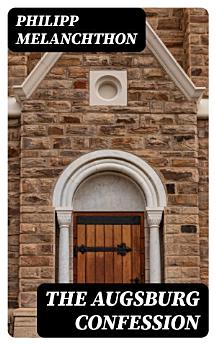The Augsburg Confession: The confession of faith, which was submitted to His Imperial Majesty Charles V at the diet of Augsburg in the year 1530
Philipp Melanchthon
May 2022 · DigiCat
Ebook
128
Pages
family_home
Eligible
info
reportRatings and reviews aren’t verified Learn More
About this ebook
The Augsburg Confession, authored by Philipp Melanchthon in 1530, stands as a seminal document of the Protestant Reformation and a pivotal theological text of Western Christianity. Written in a formal yet accessible style, it outlines the foundational beliefs of Lutheranism while articulating key criticisms of the Roman Catholic Church. The document is organized systematically, presenting articles on critical doctrines including justification by faith, the nature of sin, and the sacraments, facilitating theological discourse in both ecclesiastical and civil contexts during a time of immense religious upheaval. Philipp Melanchthon, a leading Reformer and close collaborator of Martin Luther, was instrumental in shaping the theological landscape of his time. His background as a scholar in classical languages and theology uniquely positioned him to articulate Reformational ideas clearly and compellingly. Melanchthon's commitment to educational reform and his role in drafting the Confession reflect his deep understanding of the need for doctrinal clarity during a period marked by division and conflict. For readers interested in the historical and theological development of Protestantism, The Augsburg Confession offers invaluable insights into the early Reformation ethos. This text not only serves as a foundational document for Lutheran faith but also invites reflection on the enduring questions of faith and ecclesial identity, making it an essential read for theologians, historians, and anyone seeking a deeper understanding of Christian doctrine.
About the author
Philipp Melanchthon (1497–1560), born Philipp Schwartzerdt, was a German reformer, collaborator with Martin Luther, humanist, and educator, renowned for his significant role in the history of the Protestant Reformation. As a pivotal figure alongside Luther, Melanchthon was instrumental in developing the theological foundations of Lutheranism, most notably co-authoring the Augsburg Confession ('Confessio Augustana') in 1530, which became a primary confession of faith for the Lutheran Church. His scholarly prowess was not limited to theology; he was also a classical scholar, imparting humanist educational reforms in several German universities. A prolific author and orator, he combined reformist vigor with a call for moderation, penning both religious works and educational treatises in an effort to harmonize faith with reason. His writings, such as 'Loci Communes' (1521) and 'Commentarii in Epistolas Pauli' (Commentaries on the Epistles of Paul), reflect a systematic approach to Protestant doctrine and a steady dedication to the nurturing of an educated ministry. Melanchthon's literary style was characterized by clarity, systematic thought, and a persuasive gracefulness, embodying the humanist ideals of his era while steadfastly advancing the cause of the Reformation.
Rate this ebook
Tell us what you think.
Reading information
Smartphones and tablets
Install the Google Play Books app for Android and iPad/iPhone. It syncs automatically with your account and allows you to read online or offline wherever you are.
Laptops and computers
You can listen to audiobooks purchased on Google Play using your computer's web browser.
eReaders and other devices
To read on e-ink devices like Kobo eReaders, you'll need to download a file and transfer it to your device. Follow the detailed Help Center instructions to transfer the files to supported eReaders.








